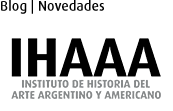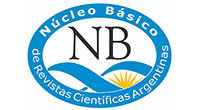Clemente Padín: Not Only Mail Art. From Inobjetal Experiences to Performance
Keywords:
Action Art, Clemente Padín, mail art, performance, performativityAbstract
Clemente Padín (1939) is a Uruguayan artist known for his Mail Art activism. He has worked not only on visual poetry and postal consignments, but also on propositional artists’ books and performances. Mieke Bal’s theorizations around performance andperformativity underpin this article, which is focused on the often forgotten actionist dimension of the Padín’s oeuvre. His artworks from the seventies departed from visual poetry towards a language of action. Four of his most relevant pieces will be examined: The Inobjetal Experiences (1971), the performance O artista estáa serviço da comunidade (1974), the book De la représentation à l’action (1975) and the booklet Hacia un lenguaje de la acción (1977).Downloads
Downloads
Published
How to Cite
Issue
Section
License
According to these terms, the material can be copied and redistributed by any means or in any format as long as a) the author and original source of the publication are quoted (magazine and URL of the work), access to the license is provided and whether changes have been made is mentioned; and b) the material is not used for commercial purposes.
The cession of non-exclusive rights means that after the publication (post print) in Boletín de Arte the authors can publish their work in any language, means and format; in such cases it must be mentioned that the material was originally published in this magazine.
Such cession also means the authorization of the authors for the work to be collected by SEDICI, the institutional archive of the National University of La Plata, and to be spread in the databases that the editorial team considers appropriate to increase the visibility of the publication and its authors.
Moreover, the magazine encourages the authors to deposit their productions in other institutional and thematic archives under the principle that offering the society the scientific and academic production without any restrictions contributes to a greater exchange of the global knowledge.
































